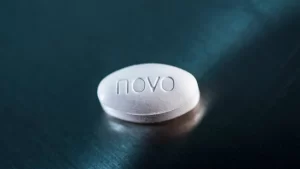Why Do Bodybuilders Take Insulin? Muscle Growth and Risks
HOME | DIABETES EDUCATION | WHY DO BODYBUILDERS TAKE INSULIN? MUSCLE GROWTH AND RISKS OF TAKING INSULIN
Insulin is misused by bodybuilders to speed up muscle growth. Its misuse can lead to health risks like hypoglycemia, weight gain, and insulin resistance.
The rationale behind its popularity in bodybuilding lies in its ability to enhance protein synthesis and muscle recovery.
Key Takeaways
- Bodybuilders take insulin for its anabolic effects that promote muscle growth and enhance protein synthesis.
- Different types of insulin, like short-acting and biphasic, are used for rapid glucose uptake and prolonged muscle support.
- Insulin is often combined with steroids and growth hormones for boosted muscle size and strength.
- Misuse of insulin in bodybuilding can lead to serious health risks including hypoglycemia, insulin resistance, and even type 2 diabetes.
why do bodybuilders take insulin?
Bodybuilders take insulin for its potent anabolic effects that promote protein synthesis and enhance muscle growth. Insulin helps absorb glucose into muscles for energy and replenishes muscle glycogen post-workout, aiding in recovery.
When combined with steroids and growth hormones, insulin can significantly boost muscle size and strength. However, misuse can lead to hypoglycemia and insulin resistance over time, potentially causing health risks like type 2 diabetes and muscle imbalances.
Types of Insulin Used in Bodybuilding
Bodybuilders utilize different types of insulin to harness its anabolic benefits. Short-acting insulins like Humalog and Novolog are favored for their rapid onset, spiking insulin levels to promote quick glucose uptake into muscle cells and enhance muscle protein synthesis. These insulins are ideal for post-workout muscle recovery and growth but require precise timing and dose management to avoid hypoglycemia.
On the other hand, intermediate-acting insulins like NPH have a slower onset and longer duration, contributing to muscle growth over an extended period. Some bodybuilders may opt for biphasic insulins, combining rapid and prolonged effects to support muscle growth with an initial boost followed by a steady release.
Insulin’s Anabolic Effects
Insulin’s anabolic effects in bodybuilding revolve around boosting protein synthesis, preventing muscle breakdown, and enhancing glucose absorption in muscle cells.
Insulin stimulates protein synthesis by aiding in the assembly of amino acids into proteins within muscle cells, promoting repair and growth. It also prevents muscle breakdown by inhibiting proteolysis, preserving hard-earned muscle mass.
Additionally, insulin enhances glucose uptake into muscle cells for energy during workouts and plays a crucial role in glycogen storage within muscles.
Combining Insulin With Other Drugs
Insulin is often combined with steroids and growth hormones to maximize muscle growth in bodybuilders. This potent trio synergistically enhances anabolic pathways, promoting muscle protein synthesis and development while reducing protein degradation. However, careful management of dosing and timing is crucial to avoid severe health risks such as hypoglycemia, insulin resistance, muscle imbalances, and atrophy.
| Performance Enhancing Drug | Anabolic Effects | Health Risks |
|---|---|---|
| Insulin | Facilitates glucose uptake, promotes protein synthesis, supports muscle mass development | Hypoglycemia, insulin resistance, muscle imbalances and atrophy |
| Steroids | Enhance muscle mass, strength and endurance, reduce recovery time | Cardiovascular issues, liver damage, hormonal imbalances |
| Growth Hormones | Increase protein synthesis, promote tissue growth, improve muscle recovery | Acromegaly, joint and muscle pain, cardiovascular disease |
Using Insulin; Administration Timing
Timing is crucial in bodybuilding when using insulin. Insulin is typically administered via subcutaneous injection before or after workouts to sync its peak activity with nutrient availability, maximizing its anabolic effects.
Most of the
patients who suffer from the lack of insulin spray or the paucity of its spray are cured by
insulin injection and make out their normal life. While body building athletes are in an off –
match period, they use insulin in an injection form in order to accelerate the growth of their
muscles. Usually insulin is immediately used after the exercise or before eating a massive
meal after the exercise. Insulin transmits carbohydrates in to the emptied muscles in order for
replacing and refilling them and by the way it plays an important role in making a muscular
body steel. But this may be dangerous for body builders, for it results in weight gaining and
fat synthesis and during that short period if an athlete does not use enough amount of
carbohydrates after insulin injection, he may strike diabetic shock or diabetic coma. That is
because of anabolic and potential characteristics of insulin that body builders unconsciously
endanger their health for the faster achievement of big body mass. Pancreas is one of the
digestive glands which is in the twelfth flexion.
Correct dosing is essential to avoid hypoglycemia risks like dizziness and fainting. Vigilance is key to prevent excessive insulin doses that can be harmful.
Dangers of Hypoglycemia
Insulin use in bodybuilders can lead to severe hypoglycemia, a dangerous condition caused by low blood sugar levels. Symptoms include confusion, dizziness, sweating, and weakness, which can progress to seizures, unconsciousness, and even death.
Mismanagement of insulin dosage, inadequate carbohydrate intake, and lack of proper blood glucose monitoring increase the risk of hypoglycemia. Bodybuilders must carefully dose insulin, ensure sufficient carbohydrate intake, and regularly monitor blood glucose levels to avoid the life-threatening consequences of hypoglycemia.
Effects on Carbohydrate Storage
Insulin promotes glucose uptake into muscle cells, enhancing energy reserves for intense training. This aids in glycogen storage, crucial for high-intensity workouts and muscle recovery in bodybuilding.
Optimal carbohydrate storage supports muscle growth and post-exercise recovery. Caution is advised due to potential risks despite the benefits for muscle mass and performance.
Negative Impact of Insulin Misuse and Muscle Growth
Insulin misuse in bodybuilding can severely impact muscle growth and overall health. The misuse of insulin can lead to detrimental effects such as hypoglycemia, insulin resistance, and muscle atrophy.
Hypoglycemia is a significant risk of excessive insulin use, causing dangerous drops in blood sugar levels. Long-term insulin abuse can result in insulin resistance, disrupting natural insulin production and potentially leading to muscle atrophy.
Additionally, insulin misuse can disrupt nutrient balance in the body, negatively affecting muscle recovery and performance in bodybuilding.
Professional Guidelines and Regulations
Professional bodybuilding guidelines strongly discourage the misuse of insulin due to its severe health risks. Insulin is banned in competitive bodybuilding to prevent unfair muscle growth advantages and protect athletes from harm.
Using insulin without medical supervision is illegal and unsafe. Healthcare professionals can provide crucial guidance on insulin’s risks and effects, making consultation essential for bodybuilders considering its use.
Insulin’s Contribution to Hypertrophy
Insulin contributes to muscle hypertrophy in bodybuilding by enhancing protein synthesis for muscle repair and growth.
It also facilitates amino acid absorption into muscle cells and promotes glucose uptake to replenish muscle glycogen stores post-workout.
However, excess insulin can lead to hypoglycemia, weight gain, and insulin resistance.
Making an Informed Decision
When considering using insulin for muscle growth, bodybuilders must understand the benefits and risks. Insulin aids in protein synthesis, nutrient absorption, and muscle recovery.
It can cause hypoglycemia if not used correctly, leading to insulin resistance. Insulin abuse can result in severe health issues like dangerously low blood sugar levels and insulin resistance.
It promotes fat storage and may disrupt natural insulin production, potentially causing muscle imbalances and atrophy.
Frequently Asked Questions
What Are the Risks of Using Insulin for Bodybuilding?
Insulin use in bodybuilding poses risks such as hypoglycemia, weight gain, and insulin resistance. Prolonged misuse can result in muscle imbalances and atrophy, disrupting natural insulin production and negatively affecting muscle metabolism.
How Does Insulin Affect Building Muscle?
Insulin boosts muscle growth by increasing protein synthesis, facilitating glucose uptake into muscle cells, and preventing muscle breakdown. However, excessive insulin usage can lead to hypoglycemia, weight gain, insulin resistance, muscle imbalances, and muscle atrophy.
Is It Bad to Inject Insulin Into Muscle?
Injecting insulin into muscle can lead to unpredictable absorption rates, risking hypoglycemia. Subcutaneous injection is the safer method, as it offers more stable blood sugar levels.
What Are the Side Effects of Insulin?
Insulin side effects may include hypoglycemia, weight gain, and insulin resistance. Prolonged misuse can lead to cardiovascular issues, mental health complications, and severe conditions like diabetic ketoacidosis. Long-term use may disrupt natural insulin production and muscle metabolism.



